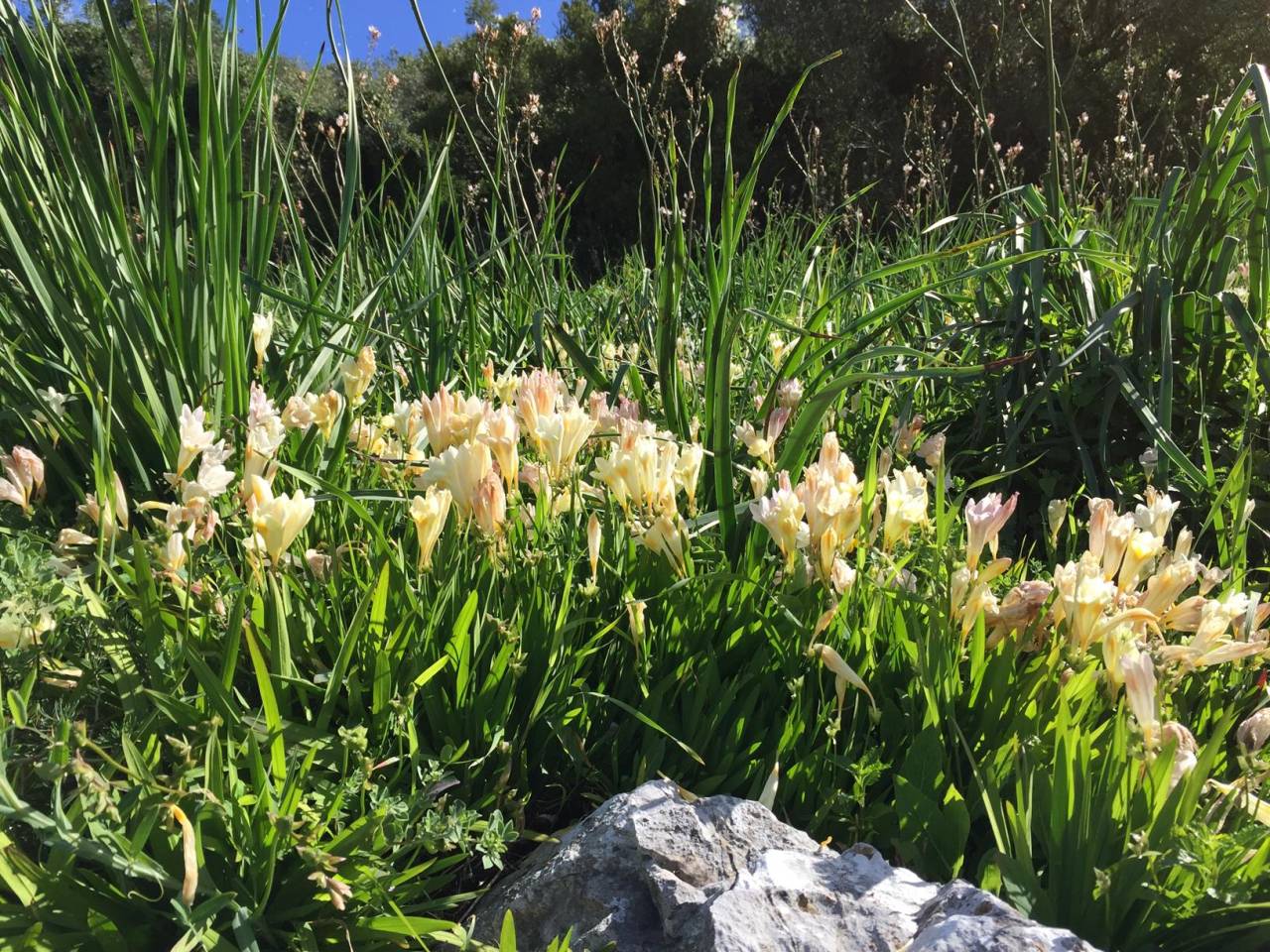
Spring Flowers
Spring is now well underway, and with it comes a spectacular display of flowering plants on the Rock.
We have had an unusually cold and rainy late winter which has retarded the blooming of our springtime plants slightly. However, spring is now fully underway, and the recent rains have really aided the plants to flourish, creating a spectacular display of flowers all across the Rock.
Now is the best time to see some of Gibraltar's native and special flowers such as the Gibraltar Candytuft Iberis gibraltarica, which is in full bloom and can be found growing on the Upper Rock where it is common and widespread. It is native to North Africa and Gibraltar, which is it's only European station.
The Giant Squill Scilla peruviana has also put on a fabulous display this spring. An extremely attractive and distinctive flower, this bulbous perennial has blue-violet flowers and can be found on the Upper Rock. Contrary to its name, this plant is not from Peru but is native to the western Mediterranean region.
Gibraltar Saxifrage Saxifraga globulifera var. gibraltarica, a variety endemic to Gibraltar, can also be seen in flower during March and April. Although not common, the main stands of this plant can be found on the northern end of the Upper Rock, including the North Face and the Upper Galleries.
Some particularily late flowering Paper-white Narcissus Narcissus papyraceus were still in flower during March, which was remarkable! This is usually in flower late autumn through into December and January, and by Febuary has finished. This was testament to the cold and wet spring we experienced.
The Barbary Nut Moraea sisyrinchium is also best seen during the months of March and April. It is common in the southern parts of Gibraltar, especially on Windmill Hill Flats and Europa Point.
The Alameda Gardens are looking particularily good this Spring, with more Freesias Freesia refracta popping up than ever before. The firebreaks of the Upper Rock are also currently covered in Freesias. This plant is not native to Gibraltar, originating from South Africa, but was introduced at some point and has naturalised throughout the Upper Rock where it is now widespread and common. It is however an attractive flower and produces a lovely, sweet scent which to many signals the coming of spring. One cannot fail to notice that this year, the Rock is awash with Bermuda Buttercups Oxalis pes-caprae with their distinctive, yellow flowers which can be seen hugging the cliffs. We have noticed that more are in flower this year than ever. A native of South Africa, it has been introduced and become naturalised. Unfortunately, it has spread very quickly in Gibraltar and is now established in most habitats, outcompeting the native flora.
More information on Gibraltar's flora can be found on the Flora of Gibraltar website: http://floraofgibraltar.myspecies.info
The gallery of pictures displays some of the most characteristic species that can be found in Gibraltar at this time of the year.







